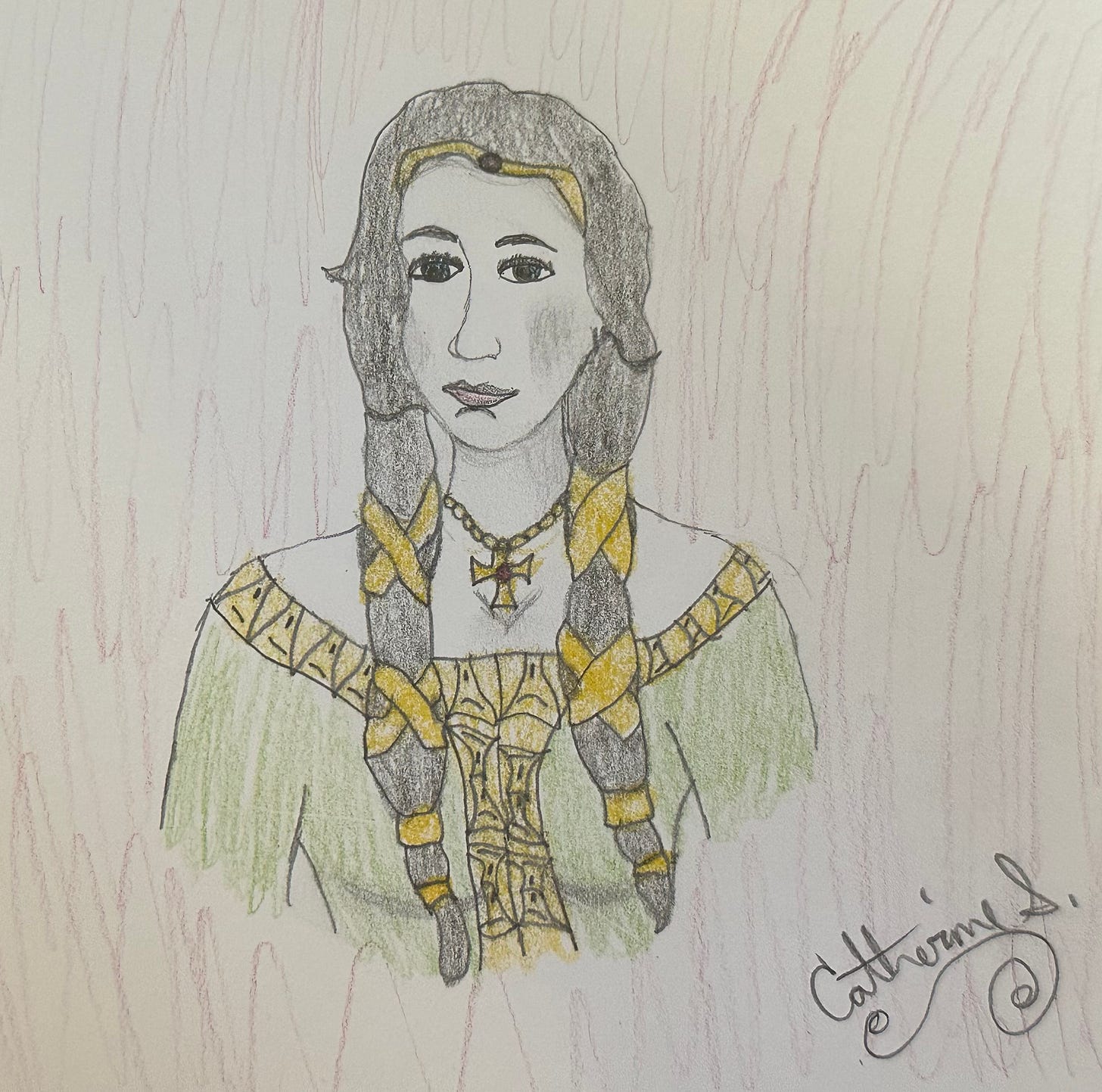Today (Jan. 25) is Dydd Santes Dwynwen, sometimes called the Welsh St. Valentine’s Day. St. Dwynwen is the Catholic patron of lovers and her feast is therefore traditionally a day to celebrate romance and love in Wales. Dwynwen was a princess, the daughter of the 5th century Irish-born Welsh King Brychan Brycheiniog. Theirs was one of the most remarkable families in all history for sanctity, since Brychan is a canonized saint and his 24 children are all saints too! Brychan must have been quite a phenomenally excellent father and monarch, but his daughter Dwynwen was no less exceptional.
So how did a woman from a large family of saints, who never married herself, become the patroness of lovers, the namesake of a romantic holiday? It’s a story full of love, disappointment, sacrifice, and miracles. From Catholicsaints.info:
“Beautiful, pious and virtuous daughter of the 5th century Welsh king, Brychan of Brecknock. A certain Maelon fell in love with her, and wished to marry her. Though Dwynwen returned his love, her heart was set on becoming a nun, and she rejected him. She dreamt she was given a sweet drink which saved her from his attentions, but which turned the poor young man to ice. Realising that Maelon couldn't help his love for her, she prayed that he be restored to life, that all lovers should find happiness, and that she never have the desire for marriage. Dwynwen became a nun and lived on Llanddwyn Island on the western coast of Ynys Mon (Anglesey), an area accessible only at low tide.”
Later, strange traditions grew up alongside pious devotion to St. Dwynwen in Wales.
“Her well, a fresh-water spring called Ffynnon Dwynwen, became a wishing well and place of pilgrimage, particularly for lovers because of the story above. The tradition grew that the eel in the well could foretell the future for lovers - ask questions and watch which way they turn. Women would scatter breadcrumbs on the surface, then lay her handkerchief on water's surface; if the eel disturbed it, her lover would be faithful. All this led to her connection with animals, which eventually led to the tradition that her intercession could heal injured animals.
There are churches dedicated to her in Wales and Cornwall. In recent years, her feast day has become increasingly popular among the Welsh with cards being sent just as on Valentine's Day, and her well continues to be a place of pilgrimage; there's a tradition that if the fish in the well are active when a couple visits, it's the sign of a faithful husband.”
St. Dwynwen, pray for all lovers—and all those seeking love!




